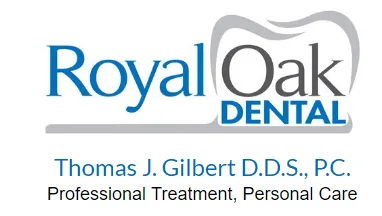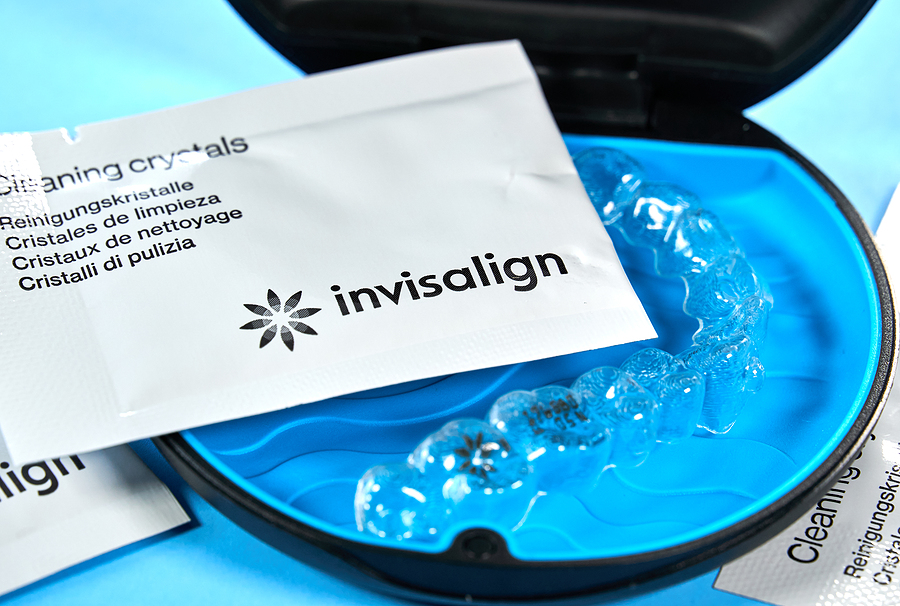The Role of Dental Crowns in Restorative Dentistry: More Than Just a Cosmetic Fix
Posted by Thomas Gilbert Feb 18, 2025

When you think about dental health, the image of a perfect smile often comes to mind. But what lies behind that radiant grin? Restorative dentistry plays a crucial role in maintaining not just aesthetics but also functionality and overall oral health. Among the various tools available for dentists, dental crowns stand out as versatile solutions that go beyond mere cosmetic fixes. Whether it's repairing damage or protecting weakened teeth, crowns are essential players in restorative practices. Discover how these remarkable restorations can transform your dental experience and enhance your smile's longevity right here in Royal Oak, MI.
The Importance of Restorative Dentistry
Restorative dentistry is vital for maintaining oral health and function. It addresses issues that can arise from decay, injury, or wear over time. By focusing on repair and rehabilitation, restorative procedures help preserve natural teeth whenever possible.
A healthy mouth contributes to overall well-being. Problems like cavities or cracked teeth can lead to more severe complications if left untreated. Restorative treatments ensure these concerns are addressed before they escalate.
Moreover, restorative dentistry enhances the quality of life. Chewing food comfortably or speaking clearly can significantly impact daily activities. Solutions such as crowns, fillings, and bridges not only restore functionality but also boost confidence in one’s smile.
In an era where aesthetics matter just as much as health, restorative dentistry balances the two seamlessly. It’s about creating a lasting foundation for both beauty and practicality in your dental care journey.
What are Dental Crowns?
Dental crowns are custom-made caps designed to fit over a damaged or decayed tooth. They serve both functional and aesthetic purposes, restoring the shape and strength of the original tooth.
Crafted from various materials such as porcelain, metal, or resin, crowns can blend seamlessly with your natural teeth. This versatility makes them an excellent choice for visible areas in the mouth.
The creation of a crown involves careful measurements and impressions. This ensures a perfect fit that feels natural when biting or chewing.
Crowns not only enhance appearance but also provide protection. By covering weak teeth, they prevent further damage and decay while supporting adjacent teeth throughout daily activities like eating and speaking.
Different Types of Dental Crowns
Dental crowns come in various materials, each offering unique advantages.
- Porcelain crowns are highly popular due to their natural appearance. They blend seamlessly with the surrounding teeth, making them ideal for front teeth restoration.
- Metal crowns provide exceptional strength and durability. Often made from gold or other alloys, they withstand significant chewing forces and are perfect for back teeth where aesthetics matter less.
- Resin crowns offer a balance between cost-effectiveness and visual appeal. While not as sturdy as porcelain or metal options, they can be an attractive choice for temporary solutions.
- Ceramic crowns combine aesthetic benefits with strength, making them suitable for patients with metal allergies. Each type of crown caters to different needs and preferences, ensuring that every patient finds a suitable option tailored to their dental situation in Royal Oak, MI.
When are Dental Crowns Needed?
Dental crowns serve multiple purposes in restorative dentistry. They become essential when a tooth has suffered significant damage or decay that can’t be effectively treated with fillings.
If a tooth is cracked, broken, or worn down due to grinding, a crown can restore its strength and functionality. This also applies to teeth affected by large cavities where traditional fillings would compromise the structure.
Crowns are often necessary following root canal treatment. After this procedure, the remaining tooth needs protection from future fractures. A crown provides that safeguard while ensuring normal chewing function.
Additionally, dental crowns are used for aesthetic reasons. If you have discolored or misshapen teeth that affect your smile’s appearance, crowns offer an effective solution to enhance your confidence.
In some cases, they play a vital role in anchoring dental bridges where adjacent teeth need support and stability for proper alignment and health of surrounding structures. Contact us to learn more.
The Procedure for Getting a Dental Crown
Getting a dental crown involves several steps, each designed to ensure your comfort and the best possible outcome. First, your dentist will examine the tooth in question. This may include taking X-rays to assess the underlying structure.
Once assessed, you’ll receive local anesthesia to numb any discomfort during the process. Your dentist will then prepare the tooth by removing decay or damaged portions. This is crucial for a secure fit.
After shaping the tooth, an impression is made using either traditional putty or digital scanning technology. This impression guides the creation of your custom crown.
While waiting for your permanent crown, you'll be fitted with a temporary one to protect your prepared tooth. Once ready, usually within two weeks, you’ll return for placement and adjustments as needed.
This meticulous approach ensures that crowns not only restore function but also enhance aesthetics effectively.
Benefits of Dental Crowns Beyond Aesthetics
Dental crowns offer more than just a polished smile. They play a crucial role in restoring function to damaged teeth. When chewing or biting, having the right support is essential for comfort and efficiency.
These durable caps can also shield weakened teeth from further harm. A tooth that has undergone root canal therapy often needs extra protection, which crowns provide nicely.
Beyond physical benefits, dental crowns can enhance oral health. By filling gaps left by decayed or broken teeth, they prevent neighboring teeth from shifting out of alignment. This stability contributes to better overall dental hygiene.
Moreover, many materials used for crowns are resistant to staining and wear over time. This means you can enjoy your favorite foods without worrying about immediate discoloration. The long-lasting nature of crowns makes them an investment in both health and confidence.
Maintaining and Caring for Dental Crowns
Caring for dental crowns is essential to ensure their longevity.
- Regular brushing and flossing are crucial. Just like natural teeth, crowns can accumulate plaque and tartar.
- Visit your dentist in Royal Oak, MI, for routine check-ups. Professional cleanings will help maintain the health of both your crowns and surrounding gums.
- Be mindful of what you eat. Avoid hard or sticky foods that could damage your crown over time. If you grind your teeth at night, talk to your dentist about a mouthguard.
- Pay attention to any discomfort or changes around the crown area; these could indicate underlying issues needing prompt attention. With proper care, dental crowns can last many years while providing functionality and aesthetic appeal in everyday life.
Conclusion: How Dental Crowns Play a Vital Role in Restorative Dentistry
Dental crowns serve as a crucial component in restorative dentistry, offering more than just cosmetic enhancements. They provide structural support to damaged teeth and help maintain proper oral function. By addressing issues like decay, fractures, or significant wear, dental crowns can prevent further complications that may arise from neglecting such problems.
Patients experiencing tooth loss or damage find that crowns can restore their smile's integrity while ensuring they can chew and speak properly. The variety of materials available means there's an option for every patient’s need and preference. Additionally, advancements in technology have made the process of receiving dental crowns quicker and more comfortable than ever before.
Maintaining these restorations is straightforward with regular dental check-ups and good oral hygiene practices. This not only prolongs the life of the crown but also promotes overall dental health.
In essence, dental crowns are pivotal in reinforcing both functionality and aesthetics within restorative dentistry. Their role transcends mere appearance; they embody a blend of artistry and science aimed at preserving natural tooth structure while enhancing the quality of life for individuals seeking comprehensive care—especially for those looking for reliable options like "crowns in Royal Oak, MI." Whether you're facing minor repairs or extensive restoration needs, understanding how vital crowns are will empower you to make informed decisions regarding your oral health journey.
Ready to achieve your perfect smile? Contact Royal Oak Dental today at 248-398-1818 or visit us at 715 North Main Street, Royal Oak, MI 48067. Our expert team is here to provide you with the best dental care and personalized treatment plans to meet your needs. Book your appointment now and take the first step towards a healthier, brighter smile!
Visit Our Office
Office Hours
- MON10:00 am - 6:00 pm
- TUE11:00 am - 7:00 pm
- WED8:00 am - 3:00 pm
- THU11:00 am - 7:00 pm
- FRIClosed
- SAT9:00 am - 3:00 pm
- SUNClosed





